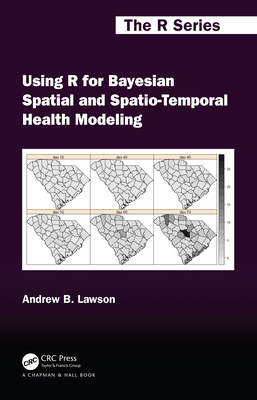Analyzing Spatial Models of Choice and Judgment
暫譯: 分析選擇與判斷的空間模型
Armstrong, David A., Bakker, Ryan, Carroll, Royce
商品描述
With recent advances in computing power and the widespread availability of preference, perception and choice data, such as public opinion surveys and legislative voting, the empirical estimation of spatial models using scaling and ideal point estimation methods has never been more accessible.The second edition of Analyzing Spatial Models of Choice and Judgment demonstrates how to estimate and interpret spatial models with a variety of methods using the open-source programming language R.
Requiring only basic knowledge of R, the book enables social science researchers to apply the methods to their own data. Also suitable for experienced methodologists, it presents the latest methods for modeling the distances between points.
The authors explain the basic theory behind empirical spatial models, then illustrate the estimation technique behind implementing each method, exploring the advantages and limitations while providing visualizations to understand the results.
This second edition updates and expands the methods and software discussed in the first edition, including new coverage of methods for ordinal data and anchoring vignettes in surveys, as well as an entire chapter dedicated to Bayesian methods. The second edition is made easier to use by the inclusion of an R package, which provides all data and functions used in the book.
David A. Armstrong II is Canada Research Chair in Political Methodology and Associate Professor of Political Science at Western University. His research interests include measurement, Democracy and state repressive action.
Ryan Bakker is Reader in Comparative Politics at the University of Essex. His research interests include applied Bayesian modeling, measurement, Western European politics, and EU politics.
Royce Carroll is Professor in Comparative Politics at the University of Essex. His research focuses on measurement of ideology and the comparative politics of legislatures and political parties.
Christopher Hare is Assistant Professor in Political Science at the University of California, Davis. His research focuses on ideology and voting behavior in US politics, political polarization, and measurement.
Keith T. Poole is Philip H. Alston Jr. Distinguished Professor of Political Science at the University of Georgia. His research interests include methodology, US political-economic history, economic growth and entrepreneurship.
Howard Rosenthal is Professor of Politics at NYU and Roger Williams Straus Professor of Social Sciences, Emeritus, at Princeton. Rosenthal's research focuses on political economy, American politics and methodology.
商品描述(中文翻譯)
隨著計算能力的最新進展以及偏好、感知和選擇數據(如公共意見調查和立法投票)的廣泛可用性,使用縮放和理想點估計方法進行空間模型的實證估計變得前所未有的容易。《分析選擇與判斷的空間模型》第二版展示了如何使用開源程式語言 R 來估計和解釋各種方法的空間模型。
該書僅需基本的 R 知識,使社會科學研究者能夠將這些方法應用於自己的數據。對於經驗豐富的方法學家來說,這本書也適用,並介紹了建模點之間距離的最新方法。
作者解釋了實證空間模型背後的基本理論,然後說明了實施每種方法的估計技術,探討其優勢和局限性,同時提供可視化以理解結果。
這一版更新並擴展了第一版中討論的方法和軟體,包括對序數數據和調查中的錨定小插曲方法的新涵蓋,以及專門針對貝葉斯方法的整個章節。第二版通過包含一個 R 套件來簡化使用,該套件提供了書中使用的所有數據和函數。
David A. Armstrong II 是加拿大政治方法論研究主席及西安大略大學政治學副教授。他的研究興趣包括測量、民主和國家壓制行動。
Ryan Bakker 是埃塞克斯大學比較政治學的讀者。他的研究興趣包括應用貝葉斯建模、測量、西歐政治和歐盟政治。
Royce Carroll 是埃塞克斯大學比較政治學教授。他的研究重點是意識形態的測量以及立法機構和政黨的比較政治。
Christopher Hare 是加州大學戴維斯分校的政治學助理教授。他的研究重點是美國政治中的意識形態和投票行為、政治極化和測量。
Keith T. Poole 是喬治亞大學的 Philip H. Alston Jr. 傑出政治學教授。他的研究興趣包括方法論、美國政治經濟歷史、經濟增長和創業。
Howard Rosenthal 是紐約大學的政治學教授及普林斯頓大學社會科學榮譽教授。Rosenthal 的研究重點是政治經濟、美國政治和方法論。
作者簡介
Dave Armstrong (http: //quantoid.net) is Canada Research Chair in Political Methodology and Associate Professor of Political Science at Western University in Ontario, Canada. He received a Ph.D. in Government and Politics from the University of Maryland in 2009 and was a post-doctoral fellow in the Department of Politics and Nuffield College at the University of Oxford. His research interests revolve around measurement and the relationship between Democracy and state repressive action. His research has been published in the American Political Science Review, the American Journal of Political Science, the American Sociological Review and the R Journal among others. Dave is an active R user and maintainer of a number of packages. DAMisc has a number of functions that ease interpretation and presentation of GLMs.
Ryan Bakker is Reader in Comparative Politics at the University of Essex. He received his Ph.D. in Political Science from the University of North Carolina at Chapel Hill in 2007. His research and teaching interests include applied Bayesian modeling, measurement, Western European politics, and EU elections and political parties. He is a principal investigator for the Chapel Hill Expert Survey (CHES), which measures political party positions on a variety of policy-specific issues in the European Union. His work has appeared in Political Analysis, Electoral Studies, European Union Politics, and Party Politics.
Royce Carroll is Professor in Comparative Politics at the University of Essex, where he teaches graduate and undergraduate courses on comparative politics and American politics. He received his Ph.D. in Political Science at the University of California, San Diego in 2007. In addition to political methodology, his research focuses on comparative politics of legislatures, coalitions and political parties, as well as measurement of ideology. Carroll is also Director of the Essex Summer School in Social Science Data Analysis.
Keith T. Poole is Philip H. Alston Jr. Distinguished Professor, Department of Political Science, University of Georgia. He received his Ph.D. in Political Science from the University of Rochester in 1978. His research interests include methodology, political-economic history of American institutions, economic growth and entrepreneurship, and the political-economic history of railroads. He is the author or coauthor of over 50 articles as well as the author of multiple books. He was a Fellow of the Center for Advanced Study in Behavioral Sciences 2003-2004 and was elected to the American Academy of Arts and Sciences in 2006.
Howard Rosenthal is Professor of Politics at NYU and Roger Williams Straus Professor of Social Sciences, Emeritus, at Princeton. Rosenthal's coauthored books include Political Bubbles: Financial Crises and the Failure of American Democracy, Polarized America: The Dance of Ideology and Unequal Riches, Ideology and Congress, and Prediction Analysis of Cross Classifications. He has coedited "What Do We Owe Each Other?" and "Credit Markets for the Poor." Rosenthal is a member of the American Academy of Arts and Sciences. He has been a Fellow of the Center for Advanced Study in Behavioral Sciences and a Visiting Scholar at the Russell Sage Foundation.
作者簡介(中文翻譯)
戴夫·阿姆斯特朗 (Dave Armstrong) (http://quantoid.net) 是加拿大安大略省西方大學政治學的政治方法論加拿大研究主席及副教授。他於2009年在馬里蘭大學獲得政府與政治的博士學位,並曾在牛津大學政治系及納菲爾德學院擔任博士後研究員。他的研究興趣圍繞測量及民主與國家壓制行動之間的關係。他的研究成果發表於《美國政治科學評論》、《美國政治科學期刊》、《美國社會學評論》及《R期刊》等。戴夫是活躍的R使用者,並維護多個套件。DAMisc擁有多個函數,能夠簡化廣義線性模型(GLMs)的解釋與呈現。
瑞安·巴克 (Ryan Bakker) 是埃塞克斯大學比較政治學的講師。他於2007年在北卡羅來納大學教堂山校區獲得政治學博士學位。他的研究與教學興趣包括應用貝葉斯建模、測量、西歐政治以及歐盟選舉與政黨。他是教堂山專家調查(CHES)的主要研究者,該調查測量歐盟內各政黨在多種政策特定議題上的立場。他的研究成果發表於《政治分析》、《選舉研究》、《歐盟政治》及《政黨政治》等期刊。
羅伊斯·卡羅爾 (Royce Carroll) 是埃塞克斯大學比較政治學的教授,教授比較政治學及美國政治的研究生及本科課程。他於2007年在加州大學聖地牙哥分校獲得政治學博士學位。除了政治方法論外,他的研究還專注於立法機構、聯盟及政黨的比較政治,以及意識形態的測量。卡羅爾還是埃塞克斯社會科學數據分析暑期學校的主任。
基思·T·普爾 (Keith T. Poole) 是喬治亞大學政治學系的菲利普·H·阿爾斯頓榮譽教授。他於1978年在羅徹斯特大學獲得政治學博士學位。他的研究興趣包括方法論、美國機構的政治經濟歷史、經濟增長與創業,以及鐵路的政治經濟歷史。他是50多篇文章的作者或合著者,並著有多本書籍。他曾於2003-2004年擔任行為科學高級研究中心的研究員,並於2006年當選美國藝術與科學學院院士。
霍華德·羅森塔爾 (Howard Rosenthal) 是紐約大學的政治學教授及普林斯頓大學社會科學榮譽教授。羅森塔爾的合著書籍包括《政治泡沫:金融危機與美國民主的失敗》、《極化的美國:意識形態與不平等財富的舞蹈》、《意識形態與國會》,以及《交叉分類的預測分析》。他共同編輯了《我們彼此欠什麼?》及《貧困者的信貸市場》。羅森塔爾是美國藝術與科學學院的成員。他曾是行為科學高級研究中心的研究員,並在拉塞爾·薩奇基金會擔任訪問學者。














